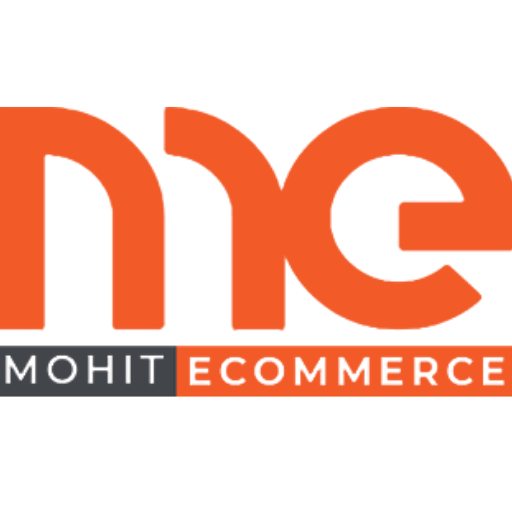When considering the best fulfillment method for your Amazon business, you need to assess whether Fulfillment by Amazon (FBA) or Fulfillment by Merchant (FBM) aligns better with your operational goals and customer needs.
Each option presents distinct advantages and challenges that can impact your sales, customer satisfaction, and bottom line. So, how do you determine which approach suits your unique business model? Let’s explore the key factors that can guide your choice.
Key Takeaways
- FBA enhances visibility and sales through Prime eligibility, making it ideal for high-demand products.
- FBM offers greater control over shipping and costs, suitable for sellers with unique branding needs.
- Choose FBA for streamlined operations and scalability, while FBM allows for personalized customer experiences and cost savings.
- Diversifying between FBA and FBM can balance profit margins and responsiveness to market changes.
- Analyze performance metrics to align your fulfillment strategy with business objectives and maximize customer satisfaction.
What is Amazon FBA in Online Business Strategy?

Amazon FBA, or Fulfillment by Amazon, is a powerful element in many online business strategies, particularly for those looking to scale efficiently. By leveraging Amazon’s robust fulfillment methods, you gain access to vast inventory storage capabilities and diverse shipping options.
This control over fulfillment allows you to focus on driving sales volume while Amazon handles logistics. With FBA, your products are eligible for Prime, which can greatly enhance customer satisfaction through faster delivery.
Automated inventory management reduces your workload and minimizes stockouts or overstock issues. Overall, integrating Amazon FBA into your business strategy can result in a streamlined operation, allowing you to concentrate on growth and consumer engagement while Amazon takes care of order fulfillment.
What is Amazon FBM and How Does It Work?

Fulfillment by Merchant (FBM) offers sellers a different approach to managing their inventory and shipping processes on Amazon. With FBM, you control the entire shipping process, allowing for greater inventory control and flexibility.
This means you can potentially improve your profit margins, as you’re responsible for the costs associated with shipping and customer service.
Here’s a breakdown of key aspects:
| Aspect | FBM | Considerations |
|---|---|---|
| Inventory Control | Seller-managed | Requires more hands-on management |
| Shipping Process | Seller handles fulfillment and delivery | Potential for varied delivery times |
| Customer Service | Directly engaged with customers | More personal but time-consuming |
Choosing FBM as your fulfillment option can be beneficial, provided you have the capacity to manage these processes efficiently.
Key Differences Between FBA and FBM for Amazon Sellers

When deciding between FBA and FBM fulfillment models, it is crucial to understand the distinct differences that can greatly impact your business.
FBA handles fulfillment processes, meaning Amazon takes care of storage, shipping, and customer service inquiries on your behalf. This can simplify operations, but it comes with higher shipping costs.
On the other hand, FBM gives you control over inventory management, allowing you to optimize shipping and fulfillment based on your preferences.
However, you’ll need to handle customer service inquiries yourself and manage the shipping logistics. Consider how these differences in fulfillment processes and costs align with your business model to choose the right option for efficiency, scalability, and customer satisfaction.
How to Choose Between FBA and FBM for Your Amazon Business?

How can you effectively decide between FBA and FBM for your business? Start by evaluating your fulfillment services needs, as well as shipping rates and customer expectations.
FBA typically offers faster shipping and customer trust, making it easier to compete in a crowded marketplace. On the other hand, FBM allows you to maintain direct oversight and control over inventory.
| Factor | FBA | FBM |
|---|---|---|
| Fulfillment Control | Limited | High |
| Shipping Rates | Usually higher | Potentially lower |
| Customer Trust | Higher | Variable |
Consider your operational goals and how each method aligns. Balancing cost with service quality is vital for your decision-making process.
5 Reasons Why You Might Choose FBA Over FBM

Choosing FBA can notably enhance your Amazon selling experience by providing access to Amazon Prime and free shipping, attracting more customers.
The streamlined fulfillment process not only saves you time but also reduces the operational hassles associated with managing inventory and shipping. Additionally, leveraging FBA can boost customer trust and satisfaction, making it easier for you to scale your business.
1. Access to Amazon Prime and Free Shipping
While both Fulfilled by Amazon (FBA) and Fulfilled by Merchant (FBM) have their merits, opting for FBA can remarkably enhance your product’s visibility through access to Amazon Prime and free shipping.
As a seller, having your items designated as Prime-eligible can greatly increase your chances of sales, as many customers prefer the convenience of quick, reliable delivery.
FBA allows your products to be stored in Amazon’s fulfillment centers, ensuring they benefit from the prime shipping options that attract millions of Prime members.
This access not only boosts your product’s prominence but also fosters customer trust. In the end, by choosing FBA, you’re harnessing the advantages of Amazon’s powerful logistics network, enhancing your competitive edge in a crowded marketplace.
2. Simplified Fulfillment Process
The fulfillment process can be an intimidating aspect of selling on Amazon, but opting for Fulfilled by Amazon (FBA) greatly simplifies this challenge. With FBA, you can focus on growing your business while Amazon handles critical fulfillment operations. Here are a few advantages to contemplate:
- Simplified fulfillment process allows you to reduce time spent on logistics.
- Inventory tracking becomes more manageable, letting you keep tabs on stock levels effortlessly.
- Shipping methods are optimized, ensuring faster delivery times.
- Enhanced customer experiences lead to higher satisfaction and repeat business.
3. Scalability and Automation
When considering how to scale your Amazon business efficiently, Fulfilled by Amazon (FBA) often emerges as the superior choice due to its inherent automation features. FBA’s structured fulfillment process allows you to focus on growth, freeing up time and resources.
With seamless integration into Amazon’s ecosystem, you can effortlessly manage inventory and order fulfillment without getting bogged down by complex logistics.
This level of automation is particularly advantageous for scaling your business model; as demand increases, FBA can handle the surge without the need for constant intervention.
In contrast, Fulfilled by Merchant (FBM) often requires more hands-on management, making it harder to achieve the same level of scalability without sacrificing efficiency. Choosing FBA could ultimately streamline your success.
4. Reduced Operational Hassles
FBA substantially reduces operational hassles, making it a compelling choice compared to FBM. When you opt for FBA, Amazon handles essential aspects of your business, allowing you to focus on growth and strategy.
Some key operational advantages include:
- Fulfillment: Amazon’s warehousing facilities manage storage and fulfillment.
- Shipping Fees: FBA often leads to lower shipping fees due to Amazon’s scale.
- Inventory Management: Amazon Seller Central provides tools to monitor inventory levels seamlessly.
- Customer Service: Amazon takes care of customer inquiries and returns, relieving you of that burden.
5. Improved Customer Trust and Satisfaction
Choosing FBA can greatly enhance customer trust and satisfaction, as it leverages Amazon’s established reputation for reliability and fast delivery.
By utilizing FBA, you’ll benefit from improved customer trust due to Amazon’s proven shipping standards and efficient operations. Your products are handled by Amazon, minimizing concerns about delays and errors, which can be essential for customer retention.
Additionally, using FBA allows for streamlined communication with customers. You can focus on addressing customer inquiries more effectively, as Amazon’s system handles much of the shipping logistics.
This means improved customer interaction, allowing you to build stronger relationships. In a competitive market, those factors considerably boost overall customer satisfaction and can lead to increased loyalty to your brand.
5 Reasons Why FBM Might Be the Right Choice for Your Amazon Business
If you’re weighing your options between FBA and FBM, consider the distinct advantages FBM offers for your Amazon business. You’ll have more control over your inventory and shipping processes, along with lower fees that can greatly impact your profit margins.
This flexibility can also allow you to tailor your shipping strategies to better suit your products and customer needs.
1. More Control Over Inventory and Shipping
One significant advantage of using Fulfillment by Merchant (FBM) is the enhanced control you gain over your inventory and shipping processes. This can be essential for individual sellers looking to tailor their fulfillment strategies to meet specific product characteristics. With FBM, you’re able to:
- Manage your inventory levels actively
- Customize your shipping methods and delivery times
- Quickly adjust to changes in demand
- Implement personalized packaging solutions
Such flexibility allows you to respond effectively to market fluctuations and customer preferences.
By utilizing FBM, you’re not only optimizing your shipping products, but you’re also ensuring that your business can thrive in a competitive landscape. For those seeking a more hands-on approach, this thorough guide may steer you toward better control and success.
2. Lower Fees Compared to FBA
With the ability to manage inventory and shipping tailored to your needs, many sellers find that Fulfillment by Merchant (FBM) not only enhances control but also offers financial benefits.
One of the most significant advantages of FBM is the lower fees compared to Fulfillment by Amazon (FBA).
By opting for FBM, you can avoid hefty fulfillment costs associated with Amazon’s services and save on monthly storage fees. You also have the freedom to negotiate with shipping partners, potentially lowering your shipping expenses.
Plus, by managing your inventory effectively, you can keep those inventory storage fees in check. Lower fees allow for more flexibility in setting your product price, making it easier to stay competitive in the marketplace.
3. Flexibility in Shipping Options
While many sellers focus on the benefits of Fulfillment by Amazon (FBA), opting for Fulfillment by Merchant (FBM) opens up a range of flexible shipping options that can be tailored to your business needs. This flexibility means you can control your shipping speed, network, and costs more effectively.
Consider these aspects when choosing FBM:
- Custom packaging materials to enhance brand identity
- The ability to set your own shipping rates for various methods
- Control over returns processing fees, allowing for better customer service
- Potentially faster shipping speed, depending on your logistics setup
4. No Need for Storage Fees
If you’re looking to maximize your profits in your Amazon business, opting for Fulfillment by Merchant (FBM) allows you to sidestep storage fees associated with Fulfillment by Amazon (FBA).
With FBM, there’s no need for storage fees like the monthly inventory storage fee or aged inventory surcharges that can eat into your potential profit margin. By handling inventory yourself, you gain better control over pricing and avoid the unpredictable fulfillment fees linked to FBA.
This strategy lets you adjust your stock levels based on demand, minimizing overhead costs. In the end, FBM provides a streamlined approach to managing your product offerings, leading to increased profitability and greater financial freedom in your Amazon business.
5. Greater Profit Margins on Low-Cost Items
When considering how to maximize profit margins on low-cost items, Fulfillment by Merchant (FBM) often emerges as the strategic choice for many sellers.
By opting for FBM, you can achieve greater profit margins on low-cost items while maintaining control over your inventory. This approach allows you to focus on your business goals without incurring hefty fees for inventory storage. Key benefits of FBM include:
- Direct control over product listings and pricing
- Lower fees compared to FBA, enhancing profit margins
- Improved seller rating through personalized service
- Increased inventory turnover rate, promoting faster sales
How FBA Can Help You Scale Your Amazon Business?

Understanding how Fulfillment by Amazon (FBA) can streamline your operations is essential in scaling your Amazon business. By leveraging Amazon’s extensive fulfillment network, you can enhance your sales velocity considerably. FBA allows you to offer prime-eligible listings, which attract more customers and increase conversion rates.
One of the major factors in scaling your business is optimizing storage costs, and FBA can alleviate these concerns by handling inventory management efficiently.
With FBA, you save time on logistics, allowing you to focus on marketing and expanding your product line. In the end, using FBA can position your business for growth and guarantee you stay competitive in a crowded marketplace.
The Cost Breakdown: FBA vs FBM for Amazon Sellers
Choosing between Fulfillment by Amazon (FBA) and Fulfillment by Merchant (FBM) greatly impacts your cost structure and overall profitability. A careful evaluation of the cost breakdown can help you choose the right model for your business.
Here’s what to take into account:
- Service fees: FBA charges for storage and fulfillment, while FBM involves your own costs.
- Long-term storage fees: FBA can incur higher storage costs for unsold inventory.
- Delivery: FBA offers faster shipping, potentially increasing your sales potential.
- Sales potential: FBA products often rank better due to Prime eligibility.
How to Balance FBA and FBM to Maximize Profits?
Utilizing both FBA and FBM can provide a strategic advantage for Amazon sellers looking to maximize profits. By diversifying your fulfillment methods, you can better respond to market fluctuations and optimize your pricing strategy.
For instance, use FBA for high-demand items that can support competitive pricing, enhancing your margins. Meanwhile, FBM can be effective for lower-priced products where fulfillment costs may erode profits.
This balance allows you to tap into different sales channels while maintaining an efficient fulfillment process.
Careful consideration of your inventory and customer preferences will guide you in adjusting your strategy, ensuring you’re meeting demand without sacrificing profitability. In the end, leveraging both FBA and FBM smartly can lead to a more robust business model.
How to Manage Inventory with FBA vs FBM?
Balancing FBA and FBM not only maximizes profits but also raises important questions about inventory management. To effectively manage your inventory, consider the following strategies:
- Product Size: Larger items may be better suited for FBM to avoid higher FBA fees.
- Seasonal Products: Monitor demand closely; FBA can help capitalize on peak sales periods.
- Items in Stock: Regularly assess stock levels to prevent overselling and stockouts across both fulfillment processes.
- Marketplace Trends: Stay updated on competition and market shifts to optimize your inventory distribution.
The Impact of FBA vs FBM on Your Amazon Seller Metrics
While both Fulfillment by Amazon (FBA) and Fulfillment by Merchant (FBM) offer unique advantages, the choice between them greatly impacts your seller metrics, including sales velocity, customer satisfaction, and operational efficiency.
For businesses aiming for rapid growth, FBA typically boosts sales velocity due to Amazon’s speed delivery.
This can lead to higher visibility and better conversion rates, positively influencing your metrics. Conversely, FBM allows for more control over fulfillment, but higher cancellation rates can arise if fulfillment isn’t managed efficiently.
Consider factors such as your approach to fulfillment and the capacity to meet buyer expectations. In the end, choosing the right method can markedly affect your potential customer base and overall success on the platform.
How to Switch Between FBA and FBM for Your Products?
Switching between Fulfillment by Amazon (FBA) and Fulfillment by Merchant (FBM) can be a strategic move to align your business goals with operational capabilities. To execute this change smoothly, consider the following steps:
- Evaluate your selling price and how it affects your profit margins.
- Assess your inventory levels to determine if you can fulfill orders efficiently.
- Review your product sourcing strategy to guarantee it suits either FBA or FBM fulfilling process.
- Monitor performance metrics to gauge how the switch impacts your sales and customer satisfaction.
How Mohit Ecommerce Can Help You Choose Between FBA and FBM for Your Business?
Choosing the right fulfillment method is essential for your eCommerce success, and that’s where Mohit Ecommerce comes in. We provide insights that help you navigate the fulfillment process between FBA and FBM, ensuring you make informed decisions.
Whether you’re a third-party seller handling standard-size items or heavy products, we’ll guide you in evaluating your options strategically. Our expertise in shipping credits and the MCF program offers additional advantages for your business.
| FBA Advantages | FBM Advantages |
|---|---|
| Fast shipping | Greater control over inventory |
| Prime eligibility | Lower overall fees |
| Storage at Amazon | Flexibility in shipping |
| Additional services | Customizable fulfillment |
| Great for scalability | Suitable for niche products |
Let us help you determine the best choice for your needs.
FBA vs FBM: Which is More Profitable for Small and Large Sellers?
Understanding the profitability of FBA and FBM is essential for sellers, regardless of their business size.
For small sellers, these models vary greatly, with FBA often providing a smoother entry into higher-traffic listings. Conversely, high-volume sellers might find that FBM gives them complete control over their inventory management.
Consider these critical factors:
- Cubic feet costs: FBA has storage fees that can impact profitability.
- Shipping efficiency: FBM allows flexibility in shipping strategies.
- Cost structure: Evaluate fees for FBA versus controlling logistics with FBM.
- Customer expectations: FBA often results in faster delivery, enhancing buyer experiences.
Ultimately, choosing between FBA and FBM boils down to analyzing how each model aligns with your specific business goals.
The Role of Customer Service in FBA vs FBM
While evaluating the differences between Fulfilled by Amazon (FBA) and Fulfilled by Merchant (FBM), it’s crucial to reflect on the role of customer service in your overall strategy. For FBA, customer support is largely managed by Amazon, ensuring speedy delivery and effective returns shipping, which can enhance your overall seller rating.
However, if you choose FBM, you’re in control of the entire fulfillment process, including packaging and customer interactions. This means you can tailor your service to meet customer expectations, but it also requires more dedication.
Active sellers in FBM often find that exceptional customer service can differentiate them, leading to repeat buyers and positive reviews.
A strategic approach to customer service can profoundly impact your success in either fulfillment model.
How to Optimize Your Amazon Business with the Right Fulfillment Model?
When it comes to optimizing your Amazon business, selecting the right fulfillment model can greatly influence your overall performance. Whether you choose FBA’s hands-off approach or FBM’s direct involvement, consider the following factors:
- Processing Speed: How quickly can you fulfill orders?
- Cost Efficiency: Are the fees manageable for your pricing strategy?
- Multi-Channel Fulfillment: Can you integrate with other sales platforms effectively?
- Scalability: Will this model support your growth plans?
Evaluate these considerations carefully. FBA might simplify the entire fulfillment process, while FBM offers more control and flexibility.
Ultimately, aligning your fulfillment model with your business goals will enhance efficiency and customer satisfaction. Make the choice that best fits your operational capabilities and growth ambitions.







